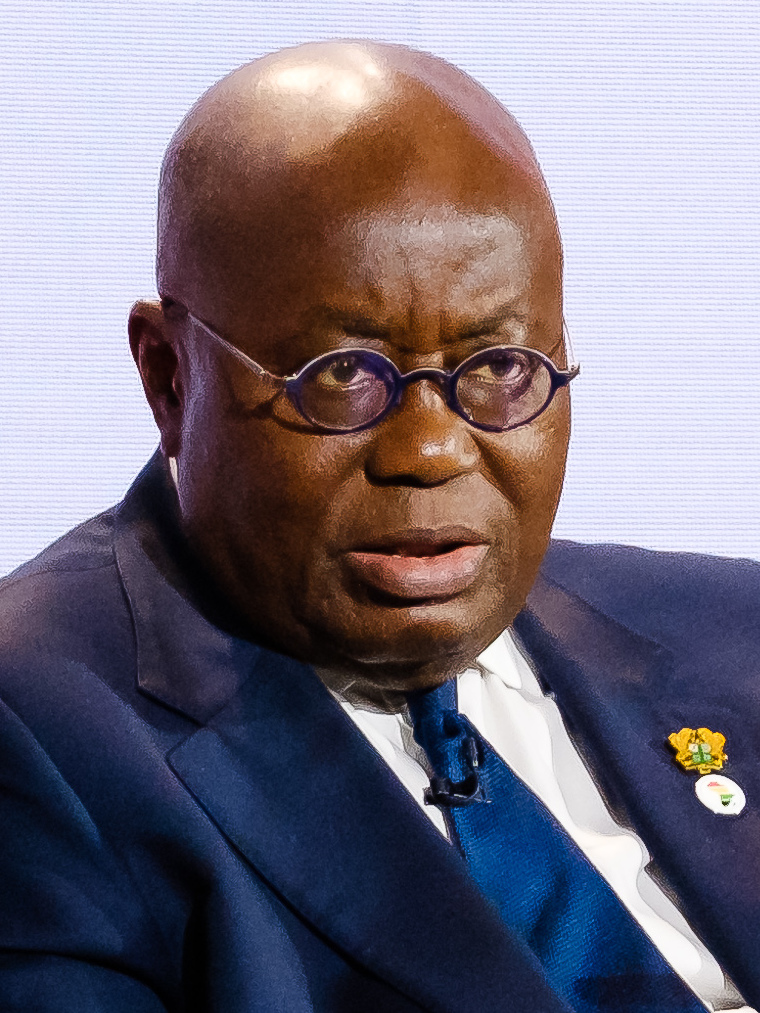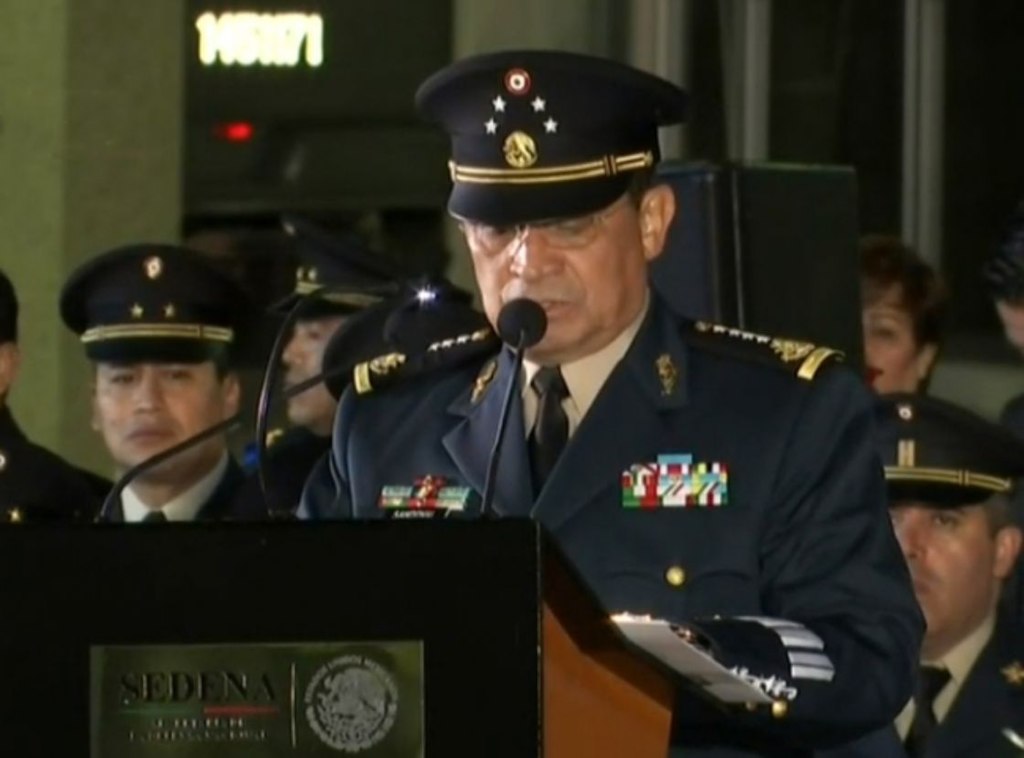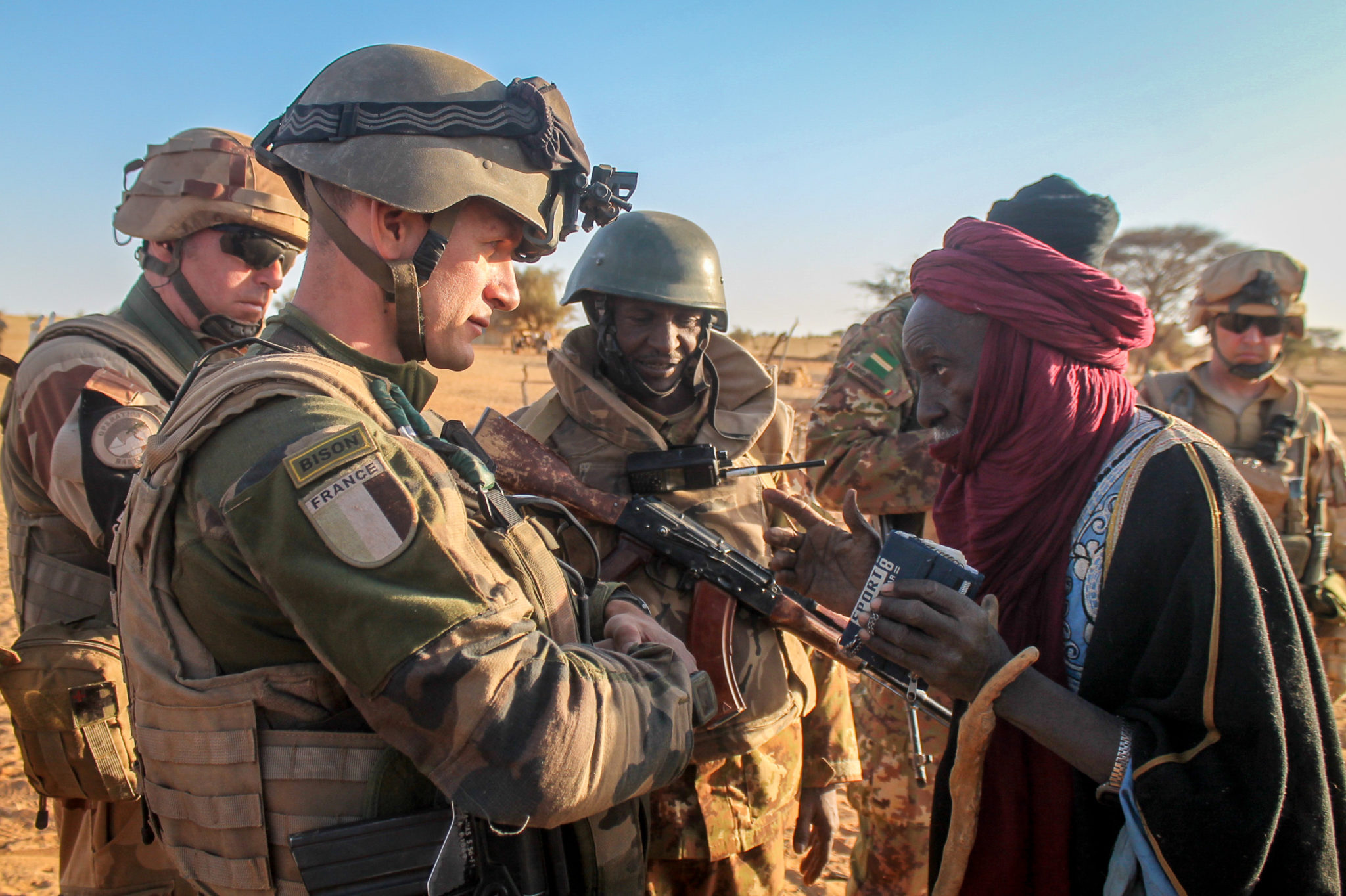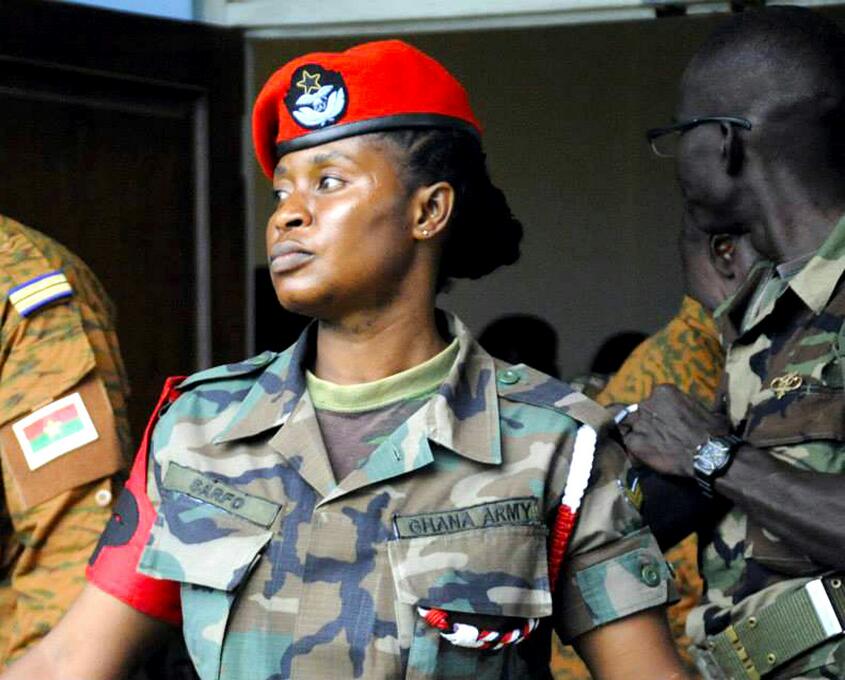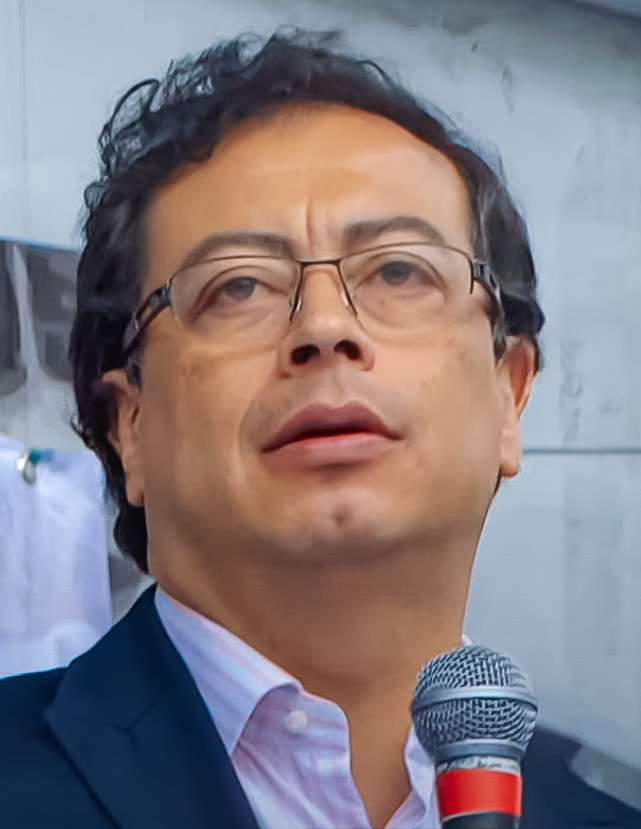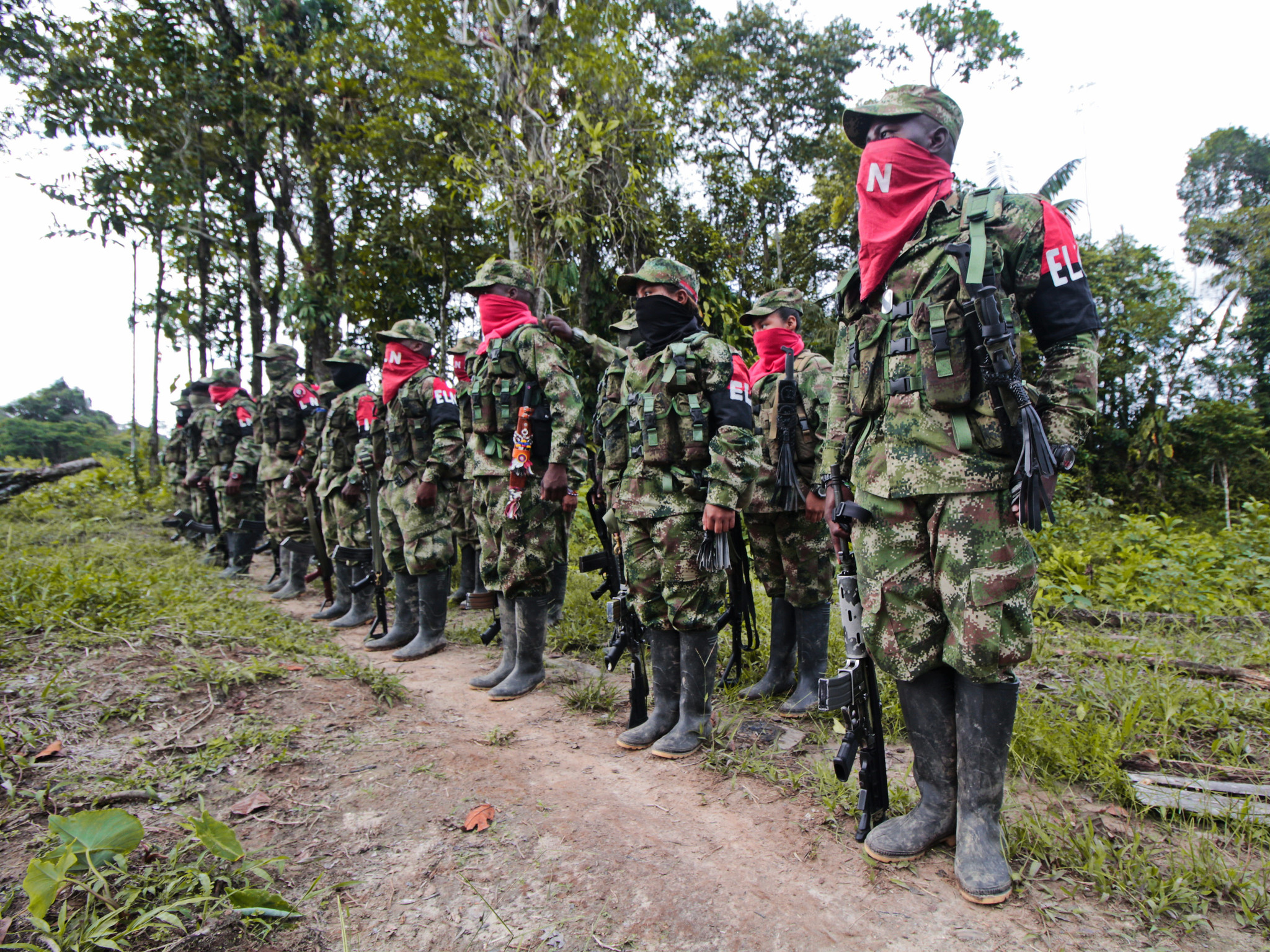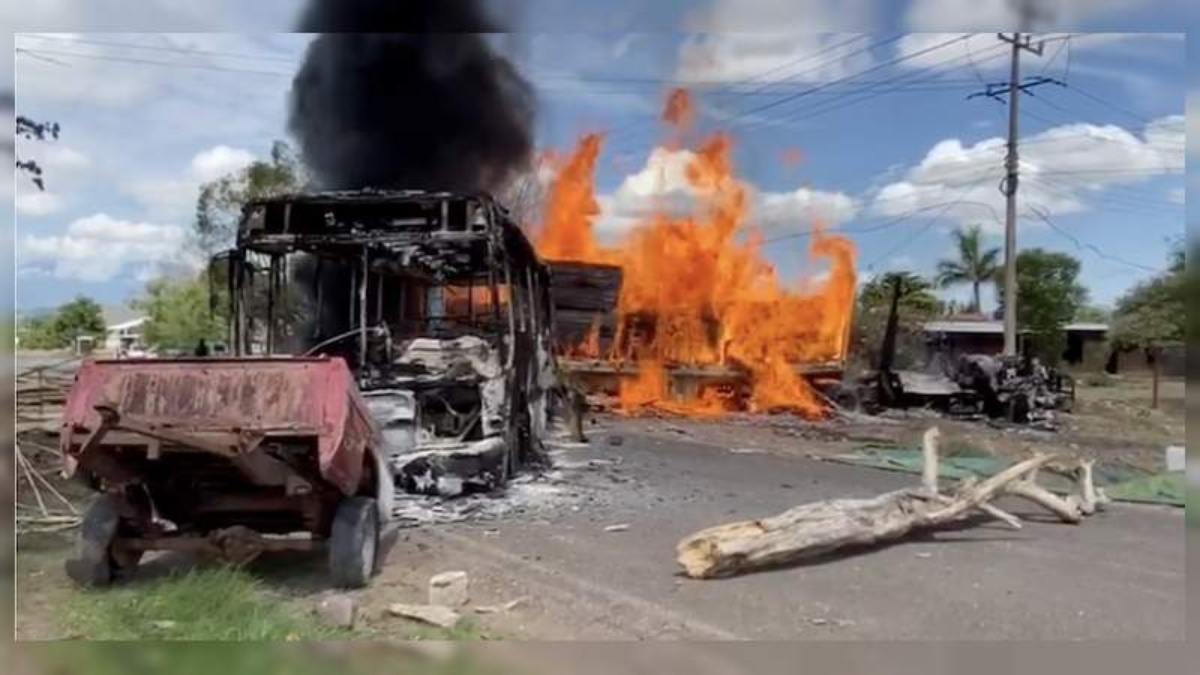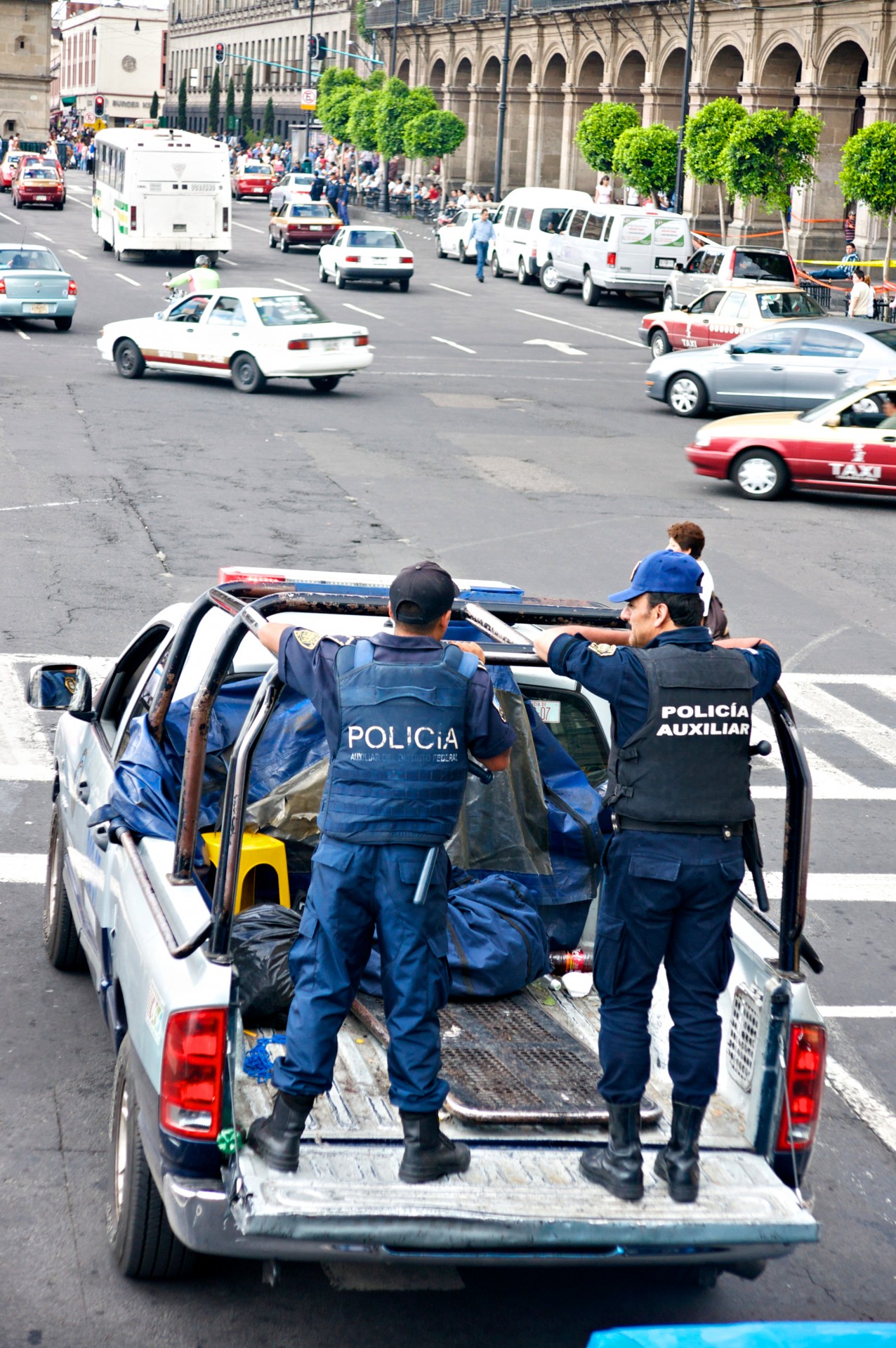A Ghanaian soldier in 2013.
We need all of us to understand that the best way of making sure that our country continues to be at peace…will be undermined if we go to sleep on this terrorist matter.
The wave of terrorism that has engulfed the Sahel over the past four years is now threatening to spread even further south than ever before, into the states of littoral West Africa. Both Ghana and Togo had previously been viewed to be insulated from the larger-scale jihadist violence caused by Salafi jihadist groups plaguing their neighbors to the north, namely al-Qaeda’s Jama’at Nasr al-Islam wal Muslimin (JNIM) and the Islamic State’s Sahara province (ISGS). Now, both Ghana and Togo are preparing for what they perceive to be an impending challenge of violence in their northern borders as both groups seek greater influence even further south. Two articles from each country help to paint a picture of local perspectives.
As the first article published in pan-African news aggregator AllAfrica.com describes, Ghana is undertaking extensive efforts to fortify its northern regions, those in closest proximity to Burkina Faso, which is one of the continent’s states most prone to jihadist violence. Taken from a transcript released by the office of the President of Ghana, Nana Addo Dankwa Akufo-Addo, the article details that in response to the insecurity it views at its northern borders, Ghana has significantly increased recruitment into its armed services since 2020 and aims to recruit an additional 4,000 soldiers per year through 2024. Additionally, it opened at least 15 new forward operating bases in the north; has rolled out a new “See Something, Say Something” campaign; and has created new special operations, armor, signals, and mechanized artillery brigades. This is all in addition to ambitious new drives for weapons procurements for land, air, and sea. As President Akufo-Addo stated: “We need all of us to understand that the best way of making sure that our country continues to be at peace…will be undermined if we go to sleep on this terrorist matter.” The second article, from the state-owned Ghanaian newspaper Ghana Today, describes how Ghana recently asked a U.S. delegation for counterterrorism assistance to address challenges at its northern borders. As the article notes, the request was underscored by Ghana’s claims that the jihadist insecurity in Burkina Faso (and Mali and Niger further north) is a result of the United States’ wars in the Middle East and South Asia, as well as its role in deposing Moammar Qaddafi in Libya in 2011.
Ghana’s neighbor, Togo, is interpreting the impending threat of jihadist violence from the north similarly. As the third article from Togolese news source ALome.com notes, Togo’s diplomatic corps returned to Lomé recently to convene under a new theme related to strategies for regions dealing with terrorism. Emphasizing Togo’s new concern for the threats of jihadist violence coming from the north, the convention’s keynote speaker was Somalia’s former Minister of Foreign Affairs and International Cooperation, whom Togo had invited to share with it lessons learned from Somalia’s fight against al-Qaeda’s branch in East Africa, al-Shabaab. Finally, in the fourth article, also from ALome.com, two editorialists writing under pseudonyms underscored the broader relationship between so many West African countries’ recent victimization by al-Qaeda and Islamic State terror attacks and the question of national unity. As they write, so widespread and destabilizing have threats of terrorism become in West Africa, touching more citizens than before, that states and their citizens could reasonably find a new sense of patriotism—a “rally around the flag” effect—in banding together to combat the threats of such groups. As they write, “In order to counter the common agreement of terrorist groups to create anarchy and carry out massacres…it is really a question of awakening the patriotic fiber where it is sleeping and restoring it where it is destroyed.”
Sources:
Source: Office of the Presidency of Ghana, “Ghana: ‘We’re Investing to Secure Our Borders Against Terrorist Threats’ – President Akufo-Addo,” AllAfrica.com (a centrist pan-African news aggregator), 22 August 2022. https://allafrica.com/stories/202208230416.html.
The President of the Republic, Nana Addo Dankwa Akufo-Addo, has emphasized the government’s strong commitment to strengthening and fortifying the country’s northern borders and points of entry against the threats of terrorism and violent extremism.
According to the President, “We can’t be complacent and take that for granted. We need all of us to understand that the best way of making sure that our country continues to be at peace so that we can get on with resolving the challenges of development and elimination of poverty, which is our main concern, will be undermined if we go to sleep on this terrorist matter.”
The President noted that the “See Something, Say Something” campaign, being undertaken by National Security, has caught the imagination of people.
In terms of manpower expansion, the Armed Forces recruited and trained some three thousand (3,000) soldiers between 2017 and 2020. It has, since 2021, embarked on accelerated nationwide recruitment and training to churn out a minimum of four thousand (4,000) officers and soldiers annually until 2024, in order to beef up the strength of our Armed Forces to optimal levels.
The Akufo-Addo Government has created additional bases, specialized units, and brigades, with the acquisition of requisite equipment, to enhance operations, particularly along Ghana’s northern frontiers. This expansion has already seen the creation and establishment of the Army Special Operations Brigade, Armoured Brigade, Signal Brigade, and two (2) Mechanised Battalions, which are deployed in the Upper West and Upper East Regions.
The construction and equipping of fifteen (15) Forward Operating Bases (FOBs) across our northern frontiers for the Armed Forces for the Northern Border Project are also ongoing.
A number of combat vehicles, equipment, and weaponry, comprising about one hundred and sixty-three (163) Armoured Personnel Carriers and other combat vehicles, trucks and general vehicles, surveillance, and communication equipment, including optical and critical mass of night vision equipment, as well as weapons, ammunitions, and body armor, have been acquired to enhance intelligence acquisition, offer better protection, improve mobility and firepower for troops on internal security operations, including those deployed to the northern frontiers.
Source: Rex Mainoo Yeboah,“West Africa: Ghana Appeals to the U.S. to Help Fight Terrorism in West Africa,” Ghana Today (state-owned national newspaper), 29 August 2022. https://ghanatoday.gov.gh/news/ghana-appeals-to-us-to-help-fight-terrorism-in-west-africa/.
President Nana Addo Dankwa Akufo-Addo has appealed to the United States Government to help West African deal with the threat of terrorism and violent extremism.
Speaking with a U.S. bipartisan Congressional delegation that paid him a visit at the Jubilee House, President Akufo-Addo said the threats posed by the expanding Islamic network were detrimental to the socioeconomic development of the region.
He told the delegation that the growing threat of terrorism in the region was a result of the U.S. decade-long fight against terrorism in the Middle East and other parts of the world.
The President said the terrorism phenomenon further heightened in the region when the U.S. fought and drove hardened jihadist groups from the Middle East a decade ago, and the overthrow of Muammar Gaddafi’s regime. Terrorism groups, which were originally confided in countries bordering the Sahel regions, took advantage of the collapse of Muammar Gaddafi’s regime and penetrated the West African region such as Mail to find refuge from the U.S. fight against them in the Middle East.
Source: Akoyi A. and K. T. (Pseudonyms), “Les priorités de la diplomatie togolaise pour les 12 mois à venir: Maintenir le cap ‘des initiatives de bons offices et de médiation’ (The priorities of Togolese diplomacy for the next 12 months: Maintain the course of ‘good offices and mediation initiatives’).” ALome.com (Togolese news site), 6 September 2022. http://news.alome.com/h/140788.html.
Diplomats accredited to the Togolese Republic made their diplomatic return on Friday, September 2 to the capital Lomé for the year 2022-2023. For its second edition, this meeting between diplomats posted in Lomé took place around a topical theme linked to the challenges facing the continent: “Security challenges and strategies for stabilizing regions of the continent confronted with terrorism and to violent extremism.”
The former Minister of Foreign Affairs and International Cooperation of Somalia, Abdissaïd Muse Ali, was rightly invited to share his country’s experiences in the fight against terrorism. With this in mind, he presented a presentation to enlighten his fellow diplomats on the Modus Operandi of pirates and extremists.
In recent years, radicalism is gaining more and more status. Following Mali, Burkina Faso, Benin, Togo, and other countries are expanding the list of countries targeted by armed groups. Hence the need to converge energies, harmonize stabilization strategies, to stick together between nations, forgetting political divisions.
Source: Kossi Kone, “Lutte contre le terrorisme, restaurer la fibre patriotique (Fight against terrorism, restore the patriotic fiber),” IciLome.com (Togolese news site),9 September 2022. https://icilome.com/2022/09/afrique-lutte-contre-le-terrorisme-restaurer-la-fibre-patriotique/.
In Mali, as in Burkina Faso, Niger, Benin, and Togo, terrorist attacks affect populations and defense forces with loss of life and destruction of infrastructure. Earlier this week, dozens of civilians (traders and students) were killed by an artisanal mine laid by terrorists in northern Burkina Faso.
The governments of all these countries fight as best they can, militarily, against this barbarism. However, with the experiences of the Western powers in Iraq and Afghanistan, it is obvious that the military component is insufficient to carry out this fight effectively.
In order to counter the common agreement of terrorist groups to create anarchy and carry out massacres, it is essential that the social contract, which must be the figurehead of any nation, should be revisited and rebuilt. It is really a question of awakening the patriotic fiber where it is sleeping and restoring it where it is destroyed.To this end, this love of the fatherland cannot be decreed as some governments hope. It is the result of continuous construction, the foundations of which are laid by the social, economic, and security policies of the leaders.
Image Information:
Image: A Ghanaian soldier in 2013.
Source: https://commons.wikimedia.org/wiki/File:Ghana_Armed_Forces_%E2%80%93_Military_Sergeant_Soldier.jpg
Attribution: CC BY 2.0
